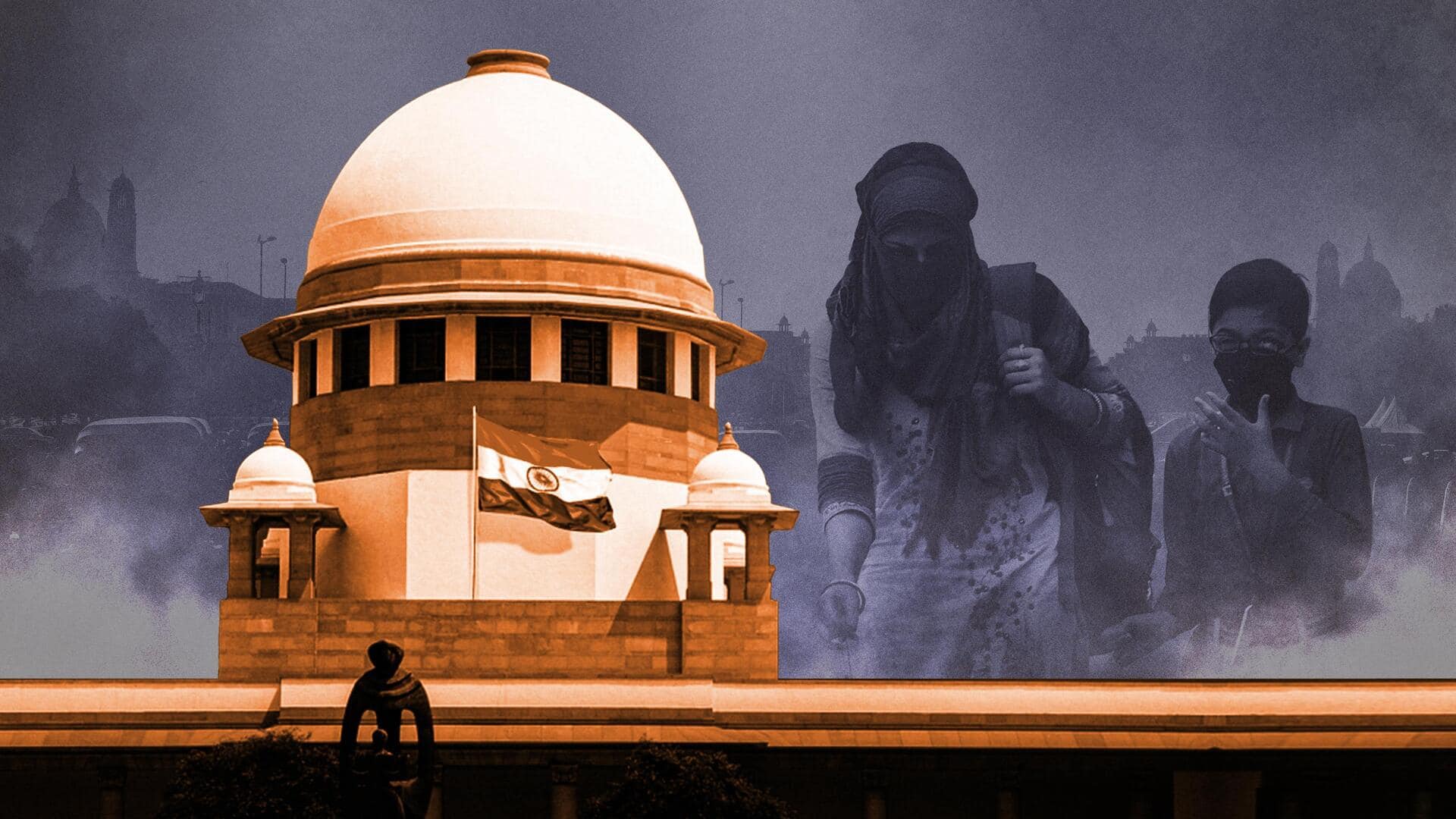
SC seeks Centre panel's report over air pollution in Delhi-NCR
What's the story
Ahead of the approaching winter, the Supreme Court on Tuesday sought a report from the Centre's Commission for Air Quality Management (CAQM) on the measures being taken to control air pollution in Delhi-NCR. It also sought information on what was being done to control crop residue burning. Demanding a report on preparedness during winter, the court listed the matter for hearing on October 31.
Context
Why does this story matter?
Every year, Delhi witnesses smog during winters, with particulate matter levels reportedly exceeding 500 micrograms/m³ of air. A Respirer Living Sciences report recently revealed that Delhi is India's most polluted city. Reportedly, those residing in the national capital are estimated to lose 11.9 years of their life due to toxic air. Per BBC, the burning of firecrackers during Diwali is also a major cause.
Development
What the Supreme Court said
The Supreme Court bench, comprising Justices Sanjay Kishan Kaul and Sudhanshu Dhulia, said, "We call upon the CAQM to submit urgently a report as to the steps being taken for control of air pollution in and around the capital." The move came after it considered the submissions made by senior advocate Aparajita Singh on the issues of Delhi's winter air pollution and stubble burning.
insight
SC takes note of Singh's submissions
Senior advocate Singh is acting as amicus curiae in the Delhi pollution case. Amicus curiae is a Latin term that refers to any person/group of people who are non-party to a case but have interests in the concerned matter. The SC noted that Singh highlighted the "serious issue" of air pollution and stubble burning. She also conveyed he CAQM was currently overseeing these matters.
insight
Delhi government's Winter Action Plan
Meanwhile, as part of its much-touted "Winter Action Plan," the Delhi government has started an anti-dust campaign in the national capital. Chief Minister Arvind Kejriwal's administration has also announced a complete ban on bursting of firecrackers. Additionally, construction sites in the city that exceed 500 square meters were asked to register on a government portal. Anti-smog guns and water sprinklers will also be deployed.
Twitter Post
Winter Action Plan
पिछले कुछ सालों में दिल्लीवासियों की मेहनत से प्रदूषण के स्तर में काफ़ी कमी आई है। प्रदूषण के ख़िलाफ़ इस जंग में दिल्ली इस बार फिर से तैयार है और दिल्ली सरकार का “विंटर एक्शन प्लान” भी तैयार है। https://t.co/ioEH8IY507
— CMO Delhi (@CMODelhi) September 29, 2023